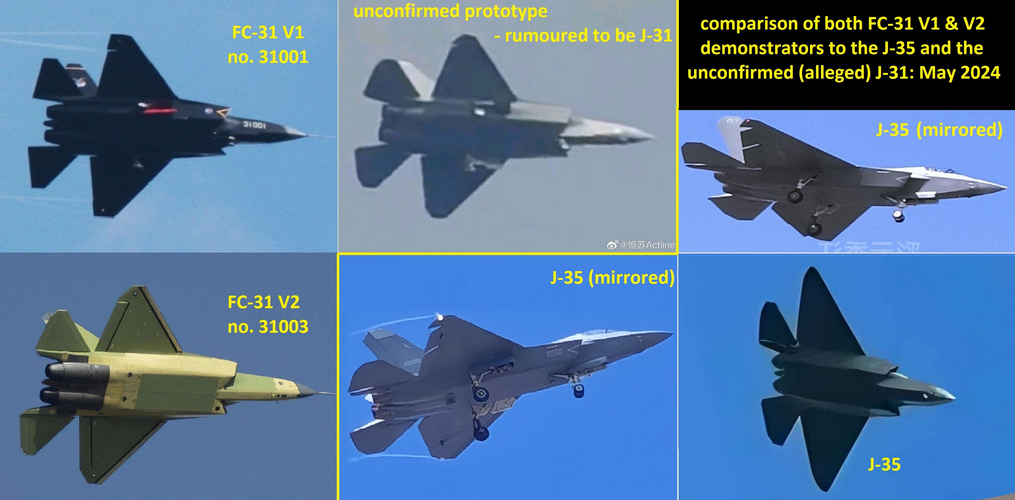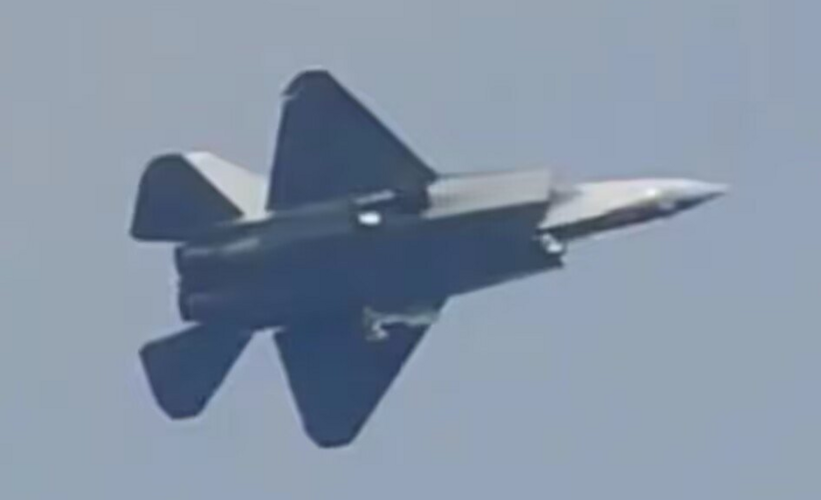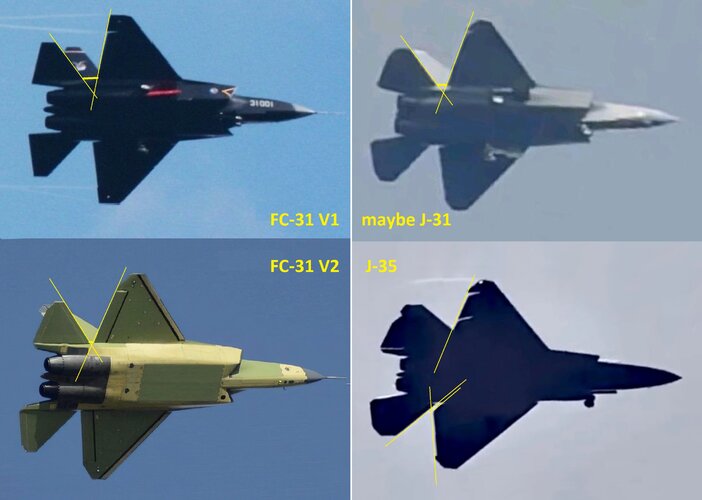siegecrossbow
I really should change my personal text
- Joined
- 12 March 2012
- Messages
- 707
- Reaction score
- 2,106
But why is his a sign for production soon? I suspect this item is installed as a standard feature at least for the later prototypes and surely on the test schedule at this stage, but I don’t think it is a hint on how far it is away from production .
It means that the design has progressed far enough for them to be comfortable enough to take internal RCS optimization measures. Not having a luneburg could be a safety liability for ground control.
In fact we can compare when J-20 prototype 2011 received luneburg and when the type entered service. That could give us a rough estimate for when J-35 is ready.
Or just that they've decided to add it now. There's nothing to prevent it being added at any stage from first flight on.It means that the design has progressed far enough for them to be comfortable enough to take internal RCS optimization measures. Not having a luneburg could be a safety liability for ground control.
If I were China, I'd "forget" to add the RAM to the skin panels and any putties they "need" to use.I wonder what would happen if Pakistan did buy the land based J-31 what would happen in regards to the Radar Absorbent Material or rather the treatment of it? Would Pakistan have to purchase the RAM from China or some how make it themselves?
I'd say once the physical design is frozen it would make sense to start using it, as it would prevent adversaries on building up info on the aircraft's return signature.
Imo it is the best looking medium weight 5th gen out there.
Imo it is the best looking medium weight 5th gen out there.
+ AMCA, Boramae and Checkmatenot a very large category. just the J-35 and the F-35 and some may dispute if the F-35 is medium weight as its heavier than the F-15
What gives you the idea that F-35 is heavier than F-15?not a very large category. just the J-35 and the F-35 and some may dispute if the F-35 is medium weight as its heavier than the F-15
AMCA has not been built, Checkmate is a mock up at this stage.+ AMCA, Boramae and Checkmate
Try taking a look at the empty weights of the F-35 variants and the F-15 variants?What gives you the idea that F-35 is heavier than F-15?
the CDR of AMCA has been finished, Checkmate is to fly relatively soon and the current Boramae is clearly intended to be a 5th gen later down the road.AMCA has not been built, Checkmate is a mock up at this stage.
Boramae isnt a 5th gen plane.
the CDR of AMCA has been finished, Checkmate is to fly relatively soon and the current Boramae is clearly intended to be a 5th gen later down the road.
Seems to really depend on the variants being compared. The empty weight of the Strike Eagle family is a is higher than that of the F-35A while the original Eagles are a bit lighter.Try taking a look at the empty weights of the F-35 variants and the F-15 variants?
Try taking a look at the empty weights of the F-35 variants and the F-15 variants?
Engines still seem quite smokey. Are these RD33s?
Is it the type of fuel that they are using? The EJ-200s do not produce that amount of smoke.
I expect them to switch to a retractable lens like the J-20's later on, assuming there's enough space available...It means that the design has progressed far enough for them to be comfortable enough to take internal RCS optimization measures. Not having a luneburg could be a safety liability for ground control.







What do you think? So there is maybe indeed a true J-31 ...
More to the point, it appears that the FC-31 v2 was a sort of hybrid demonstrator combining the fuselage (including landing gear) of the J-35 with the flying surfaces of the land-based variant. Hard to tell, but the J-35 seems to have larger stabilators too.
Whether this is indicative of serious PLAAF interest or a renewed SAC company initiative angling for export orders (Pakistan), who knows.




China develops new stealth aircraft likely to be deployed on carriers
J-31B expected to raise People's Liberation Army's fighting capabilitiesasia.nikkei.com
